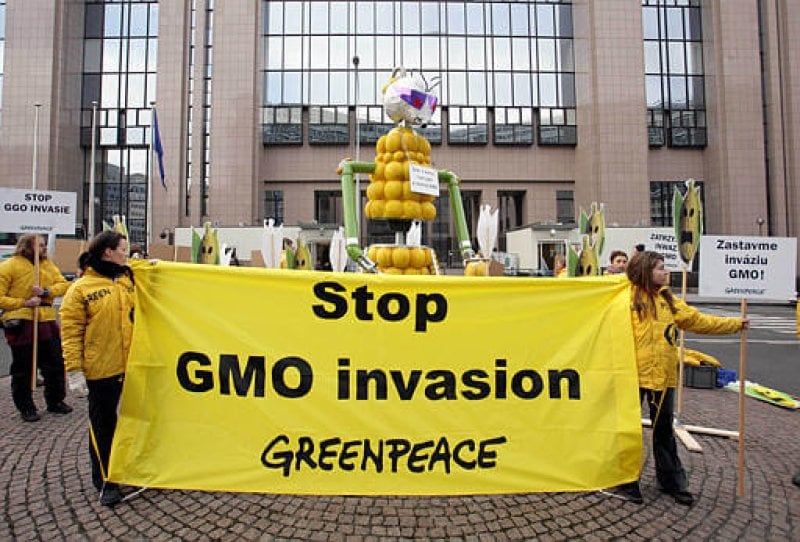I have written extensively about GMOs….because it is the subject about which the difference between public opinion and the opinion of scientists is greatest (51%). I think it’s clear that this disparity is due to a deliberate propaganda campaign largely funded by the organic lobby with collaboration from extreme environmental groups, like Greenpeace.
…
A new study published in Nature may shed further light on the GMO controversy. The authors explore the relationship between knowledge about genetics and attitudes toward GMOs.
In a nationally representative sample of US adults, we find that as extremity of opposition to and concern about genetically modified foods increases, objective knowledge about science and genetics decreases….
Readers of this blog may recognize this pattern as the Dunning-Kruger effect (DK)….Actually the pattern the current authors found is even more extreme [than] DK….at the extreme end of opposition to GMOs, opponents actually knew the least about genetics but thought they knew the most.
…
This may be saying something about the nature of science-denying campaigns or the topics themselves. Climate change denial is mostly about political affiliation, and….based largely on opposition to proposed solutions.
Anti-vaccine and anti-GMO attitudes, on the other hand, are bipartisan. Further, they are….driven by scientific misinformation. That may be the key….Misinformation gives the illusion of knowledge, and because it goes against the mainstream this false knowledge makes one feel superior to others….
Read full, original article: Dunning Kruger and GMO Opposition































